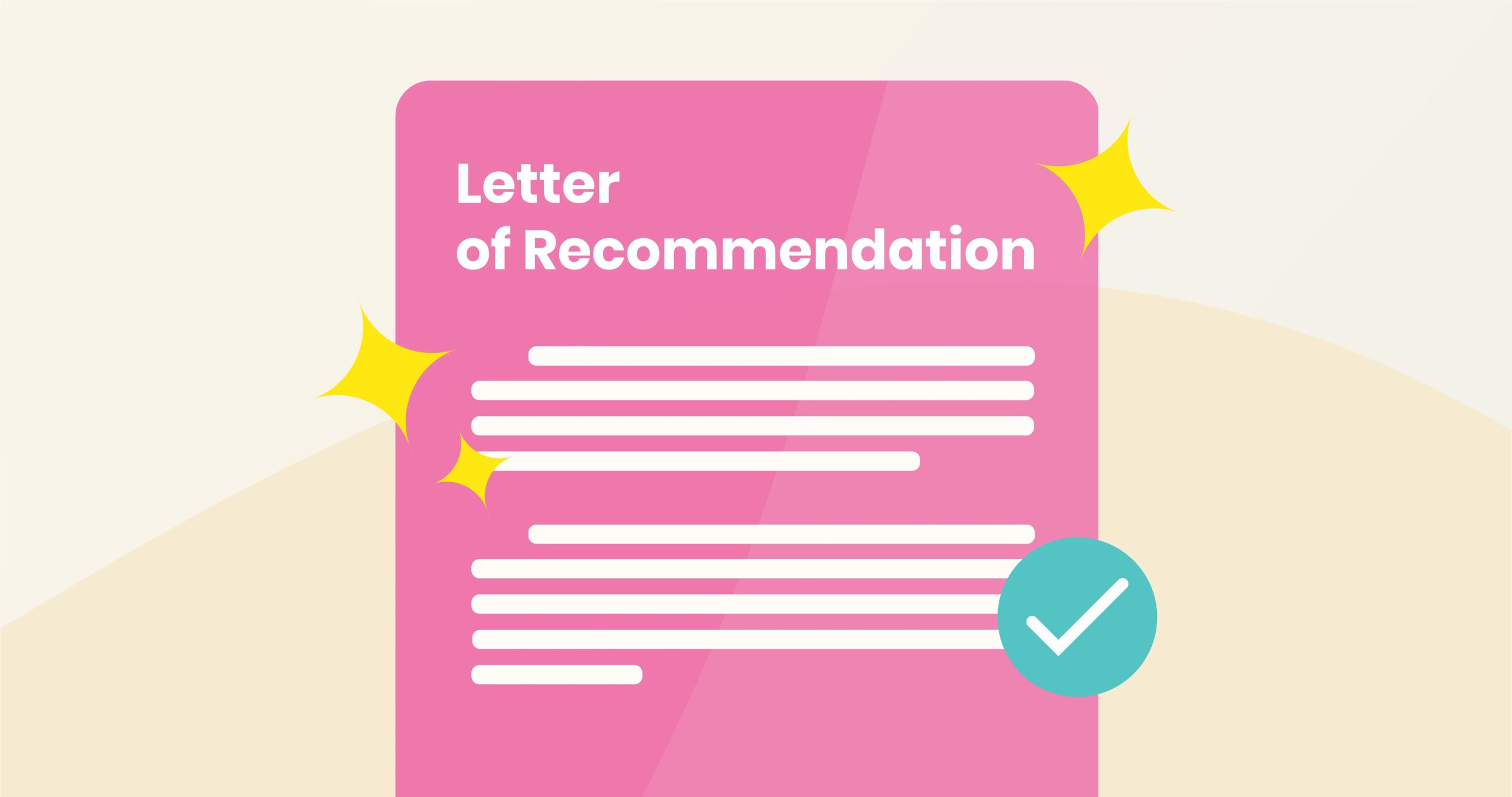Career Tips
Here Is How To Ask For A Letter Of Recommendation

If you intend to pursue graduate school or research, you will almost certainly require a few letters of recommendation from your teachers. While you may have asked your high school teachers to write letters for you, asking a professor to do so is a little different. How?
This post will teach you how to ask for a letter of recommendation by covering:
- Who to Ask for a Letter of Recommendation
- When Is the Best Time to Ask for a Letter of Recommendation?
- How to Ask a Professor for a Letter of Recommendation
- How to Ask for a Letter of Recommendation via Email (Sample)
Who to Ask for a Letter of Recommendation
Consider what you need the letter for before deciding who to ask for a recommendation letter. Are you interested in pursuing an MBA or an MFA? Medical school or law school? Will you use the letter to apply for an internship, a research position, or a job?
“A student would be well-advised to consult with a career counselor and/or advisor to brainstorm and discuss who they should ask to write on their behalf,” says Mark Peltz, department head of the center for careers, life, and service at Grinnell College. In general, the person writing the letter should know you well and have direct experience with your performance.
“A professor with whom you’ve had multiple classes or worked closely with on a research or creative project are likely those in the best position to speak to your strengths and qualifications,” says Peltz. “Similarly, others who have observed or supervised your work can make good reference writers.”
How Many People Should I Ask?
You’ll likely need more than one recommendation letter. However, asking everyone you know to write one is unlikely to work in your favor. “Writing an impactful letter of recommendation takes time, so be thoughtful about who you ask and be courteous of their time,” says Peltz.
For example, if you need two recommendation letters, choose the top two people to approach. Then, in case your top two selections are unavailable, choose two to three alternates. But don’t ask everyone on your list to write letters for you just to be safe.
If nothing else, asking for a letter of recommendation requires you to keep track of who has sent one. And, regardless of how efficient your monitoring system is, more letter writers means more to manage… and perhaps lose track of.
When Is the Best Time to Ask for a Letter of Recommendation?
You can get a letter of recommendation from a professor at any time. However, because application deadlines are approaching, the fall is the most popular time to request one. Peltz recommends students to plan ahead of time and contact their top options at least six to eight weeks before the deadline.
“Professors are commonly writing multiple letters of recommendation for current and former students,” and this timeline gives you a large enough buffer to follow up with reminders and nudges if you need to.
Find your career fit
Discover if this is the right career path for you with a free virtual work experience.
How to Ask a Professor for a Letter of Recommendation
Once you’ve identified a list of two to four top choices, here’s how to ask for a letter of recommendation.
Schedule a Meeting
Peltz advises students to request a meeting via email. “This provides both parties the opportunity to have a conversation about the student’s goals, where they are submitting applications, and other relevant matters.”
If an in-person meeting is impossible, then a phone call will do. But Peltz says you should try for some kind of face-to-face interaction whenever possible. “It gives the student an opportunity to pick up on any nonverbal cues. If the professor hedges and doesn’t respond favorably to the request, this is useful information and you may want to consider identifying an alternate reference.”
Explain Why Them
A crucial component of your ask is explaining why you are selecting this individual to write a recommendation letter for you. Though it may be obvious to you why you’re asking, you cannot assume the professor has the same understanding. Even if the reason is evident to both parties, a detailed explanation makes it clear that you’ve “given this some serious thought and there is substantive reason and motivation behind the request,” says Peltz.
In other words, you want to be precise about why you’re asking this individual, so it’s clear you aren’t asking anyone and everyone.
Give Them an Out
Not every professor will have the time or be comfortable writing a letter of recommendation for you for many reasons. Allow them to deny your request gently and gracefully so that it is not embarrassing for either party and does not harm your relationship.
Make Things Easy
Make it easier for the person who has agreed to write a letter of recommendation for you. Send the letter writer your current CV or curriculum vitae, or create a highlight sheet with the hard and soft abilities you want them to highlight, as well as your short and long-term goals. Having something to refer to when the professor is writing your recommendation letter can assist them in creating a document that is unique to you.
And if there are specific criteria that must be included in the letter, pass that information along. “Failing to do so can have a major impact on the overall quality of your application,” warns Peltz.
Showcase new skills
Build the confidence and practical skills that employers are looking for with Forage virtual work experiences.
How to Ask for a Letter of Recommendation via Email (Sample)
Two sample emails for requesting a letter of recommendation are below. The first asks a meeting. The second is asking for a letter of recommendation when meeting in person is not possible.
Start with a clear subject line (Request for Letter of Recommendation works well in both circumstances). Introduce yourself or refresh their memory, especially if you haven’t been in their class recently. Then briefly but clearly explain your request and why, and allow the lecturer to graciously decline.
That looks like this:
Sample 1:
Dear Professor [Name]:
My name is [Your Name]. I took your [name of class and when you took it]. I’m applying to [name of school and program], and I’d like to ask you to write a letter of recommendation for me.
I’m happy to meet with you at your convenience to discuss the details and can give you a copy of [my current resume/CV/highlight sheet] and anything else you need.
And, of course, if you can’t write a recommendation letter for me, I completely understand. Please do not feel obligated to say yes.
Thank you,
[Your Name]
Sample 2:
Dear Professor [Name]:
My name is [Your Name]. I took your [name of class and when you took it]. I’m applying to [name of school and program], and I’d like to ask you to write a letter of recommendation for me.
I’m asking you because [reason why you are asking this person] and think your letter would be a strong addition to my application. I can provide my [current resume/CV/highlight sheet] to help refresh your memory.
If you can write the letter, it’s due by [date]. Once completed, you can [include information on how they submit the letter]. I will also need [include any important requirements].
And, of course, if you can’t write a recommendation letter for me, I completely understand. Please do not feel obligated to say yes.
Thanks so much,
[Your Name]












